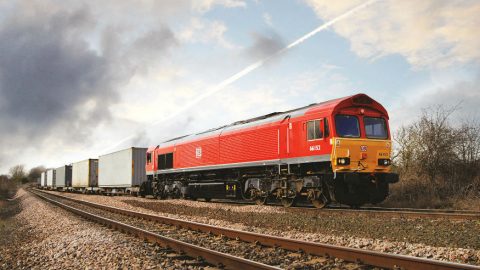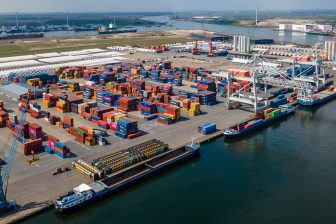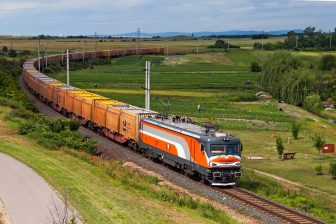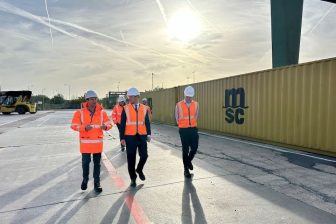
DB Cargo UK finds permanent way to stay
A massive track attack by Britain’s biggest largest rail freight company. That is the promise from DB Cargo UK, as the freight operator lays down new rails at three of its most important depots in England. While Deutsche Bahn is considering slimming down DB Cargo operations elsewhere, the long-term programme in the UK points to a more stable future for operations there.
Born out of the formerly nationalised freight operation of British Rail, DB Cargo UK has undergone several ownerships and name changes since 1996, settling on the current title in 2016. With the bright red paint barely dry on some units, the company is now embarking on what it claims will be a multi-million pound/euro programme of investment to improve track and rail infrastructure at three key sites.
Over the next twelve months, teams will be replacing more than 20km of track at Immingham in North Lincolnshire;
Rotherham in South Yorkshire; and Toton in Nottinghamshire. Dave Ethell, DB Cargo UK Head of Safety and Operations, said the work would deliver significant operational improvements. “These are the first of a
number of strategically important sites that we are investing in over the next five years, with others earmarked to follow,” he said.
On track
These first three facilities come from a portfolio of over 100 locations, stretching from Elgin in the North of Scotland to Exeter in the South of England. The initial trio are all broadly within the English Midlands, and provide a variety of logistic and operational services, from loading though to maintenance. In order to reduce costs and minimise the environmental impact of the improvement work, some of the track used will be reclaimed from a largely redundant site at Washwood Heath near the centre of Birmingham.
Although the company was hit very heavily by the UK Government decision to phase out coal fired power generation, and also by the significant contraction of the UK steel industry, it has proved resilient. In 2016 the business lost over 900 employees, a quarter of its UK workforce, but it currently employs around 2,200 staff, and moves almost seven million net tonne kilometres annually on 235 daily trains, representing around one third of all UK freight movements.
Railing against trend
The investment in the UK operations is at odds with the adverse signals from continental Europe. Last week, the company was in the news because of proposed reorganisation of parent company DB’s freight operations in general, which could result in operational withdrawal from core territories in northern Germany and in The Netherlands, with a significant reduction in staff.
However, the long-term programme in the UK points to a more stable future for operations there. While Toton and Rotherham are primarily revenue earning sites, the facility at Immingham also serves as a refuelling station and
rolling stock maintenance depot for part of the company’s fleet of 237 locos and nearly 7,000 wagons.
Safety aspects
In a nod to his position, Dave Ethell stresses the safety aspects of well maintained permanent way. “It will improve the safety of our colleagues, ensuring minimal disruption to the services we operate for our customers,” he
said.
Unlike their passenger carrying counterparts, this rail replacement programme will not involve any buses, and services should run smoothly. Eventually, even more smoothly in fact.
Author: Simon Walton
Also read:





